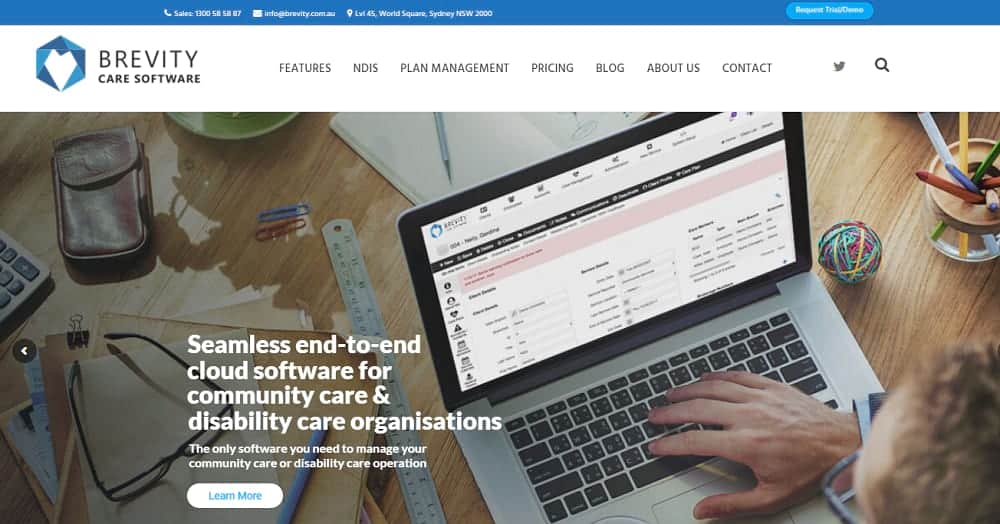
“The severity of one’s disability does not determine their level of potential. The greatest barriers that persons with disabilities have to overcome are expectations.” So said disability rights advocate Karen Clay.
Indeed, when it comes to providing support services to people living with a disability, the aim should always be helping them achieve the same life goals as able-bodied people.
Having a nice place to live, doing meaningful work, enjoying interesting hobbies, as well as having a network of supportive friends and family are what everyone should be able to do irrespective of their body condition. NDIS participants, just like able-bodied people, have the potential to achieve these things given the right support.
Understanding the different NDIS support categories is important for NDIS service providers. Without a knowledge of the NDIS support categories, you cannot be certain whether or not your business can provide services and/or products funded by the NDIS.
The NDIS bestows people living with a disability the power to purchase supports that can help them achieve their life goals. As part of their NDIS plan, participants can use their allocated funds to buy a range of supports.
These supports should be aimed at assisting their independence and mobility as well as their social and economic freedom.
NDIS Support Categories Explained
The NDIS support categories are arranged into three main groups: core, capacity building and capital supports.
NDIS Support Categories: Core Supports
Core supports are defined as the assistance enabling a participant to undertake day-to-day activities. For example, this level of support could be in household tasks and areas such as accommodation, transportation, social participation, and so on.
NDIS Support Categories: Capacity Building
Capacity-building supports are the ones that support NDIS participants’ longer-term goals of moving towards greater independence. These supports are usually provided in sync with core supports. For example, a core support might be having home-delivered meals.
A capacity-building support, on the other hand, would be to gain skills and experience in preparing healthy meals at home.

NDIS Support Categories: Capital Supports
Capital supports relate to purchasing more expensive assistive technology, such as home or vehicle modifications.
NDIS Supports: 15 Categories
The 111-page NDIS Price Guide lists 15 different categories of NDIS supports. In the following section, we will summarise each of the 15 NDIS support categories for you.
We will help you understand what products and services your business is already offering to NDIS participants, as well as those easily within reach to help expand your NDIS provider business.
- Assistance with Daily Living
This type of NDIS support relates to getting help with personal activities on a daily basis—such as personal hygiene and domestic care tasks. This category of support enables a person living with a disability to be as independent as possible, both at home as well as within their wider community.
- Transport
Transport helps connect NDIS participants to their community. It is essential that people living with a disability get supported in accessing educational, vocational, and recreational opportunities.
- Consumables
Consumables are an NDIS support category aimed at helping participants purchase everyday items to meet their unique needs. This could mean paying for such supports as dietary supplements, wound care, and continence products.

- Assistive Technology
This NDIS support category relates to the pieces of technology and equipment participants use to help them do things in their daily life they otherwise couldn’t because of disability.
This includes assistive equipment in the household, products for personal care, and vehicle modifications that allow a person living with a disability to drive or travel as a passenger.
- Assistance with Social and Community Participation
Participation assistance is one of the most important NDIS support categories for a participant’s sense of community connection. This funding supports NDIS participants in meeting their goals of recreational, community, and social participation. An example would be funding a Disability Support Worker to help with an outing to the movies.
- Home Modifications
Examples of home modifications designed to enable NDIS participants to live more independently in their own home include purchasing a stair climber, modifications made to the bathroom, and wheelchair ramps.
- Coordination of Supports
This NDIS funding category aims to strengthen the ability of participants in connecting with a range of reasonable and necessary supports. Through specialist coordination, it supports the ongoing connection with informal, mainstream and funded supports.
- Improved Living Arrangements
This NDIS support category may include helping people living with a disability to apply for group home living arrangements or drop in support. It could also mean getting assistance with meeting tenancy obligations or checking whether the home is appropriate for a participant’s unique needs.
- Increased Social and Community Participation
This NDIS funding category pertains to taking advantage of such things as: peer support, community participation, specialised weekend programs, and group fitness classes for people living with a disability.

- Finding and Keeping a Job (FAKAJ)
A plan-specific support, FAKAJ is aimed at helping eligible NDIS participants enter the workforce. FAKAJ involves helping participants transition to work, improve their work skills, as well as assist in employment.
- Improved Relationships
Intensive behaviour support, positive behaviour management, and individualised social skills development are all included in this NDIS support category.
- Improved Health and Wellbeing
This NDIS support category helps participants improve their overall health and wellbeing. It includes things such as exercise physiology, as well as personal training and nutritional advice.
- Improved Learning
Out of the three main NDIS support categories, improved learning comes under the capacity building category. Its aim is to help NDIS participants access further education and training by building up skills to live and study more independently.
- Improved Life Choices
This NDIS support category focuses on strengthening a participant’s ability to manage their supports in order to better meet their life goals. This includes building financial literacy skills, organisational skills, as well as developing an ability to manage their NDIS plan independently, when possible.
- Improved Daily Living
This support basically epitomises the intent behind all of the different NDIS support categories: empowering people with a disability to achieve their potential in daily life. It aims to develop NDIS participants’ skills in the areas of budgeting as well as general life skills. It also funds counselling, training for carers as well as early childhood interventions.
NDIS Provider: Find Your Opportunity in Support Categories
As can be seen, the different NDIS support categories present a range of opportunities for NDIS providers to enter the lucrative NDIS market and help people living with a disability meet their unique level of potential.

If you want to know more about how to make your NDIS business thrive, your client’s lives better, and your job easier, talk to us at Brevity Care Software today.
Originally published Nov 24 2021
Frequently Asked Questions
Level 3 NDIS support is defined as “very high intensity” support. It includes assistive technology to help participants do things in their daily life they otherwise couldn’t because of disability.
Core supports are defined as the assistance enabling a participant to undertake day-to-day activities. For example, this level of support could be in the form of providing assistance with household tasks.
Capacity building supports are the ones that support NDIS participants’ longer term goals of moving toward greater independence. These supports are usually provided in sync with the core supports. For example, a core support might be having home-delivered meals. A capacity building support, on the other hand, would be to gain skills and experience in preparing healthy meals at home.
The NDIS funds 15 different categories of NDIS supports including assistance with daily life, assistive technology, home modifications, and coordination of supports, among others.



